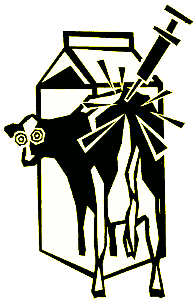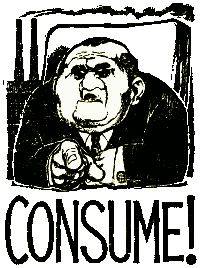
the electrohippie collective
an electrohippie's
World-View Overview
(updated Autumn 2017)'The Overview', Part 9 –
2006-2009: We're back, but we're lurking in the shadows of the movement
In 2006 we announced that we were "ending the un-collective" – that wasn't really a statement of change, but rather a signal that we were willing to communicate with the outside world again.
Things were changing; the pressure for change was re-asserting itself. It was time to re-join the struggle.
Today the best things are happening, as they always have, out on the edge of the movement. For that reason, rather than seeking to marshall "the big battallions" against particular targets, were concentrating on being "the best shot" by working with those on the periphery of the digital domain.
In many ways, we've now come full-circle from those workshops and training days that we once ran in the late 1990s, before we were 'infamous'.
The authoritarian tendencies of the governing parties of many western states still haven't gone away. They've been cowed by their fantabulous mistakes over Iraq and Afghanistan, but they still can't admit it.
In the digital domain too, we see the same mentality of 'control' playing itself out in the continued calls for increased state and commercial monitoring and surveillance, despite aspects of this having been ruled unlawful. In fact, far from digital security taking a back-seat as the West retreats from the Middle East, and especially with the rise of China and India, people are calling for a direct engagement in cyber-conflict.
 For us the great object lesson that we can draw upon – to devise strategies to respond to the state and corporate control over expression and communication – is the recent crack-down on animal rights campaigners. Irrespective of the rights or wrong of their cause or actions, the way in which the state and private companies have worked together to co-ordinate their efforts allows us to see what is possible within the present system; should 'the powers the be' decide that some other campaign or pressure groups should be declared "persona non grata".
For us the great object lesson that we can draw upon – to devise strategies to respond to the state and corporate control over expression and communication – is the recent crack-down on animal rights campaigners. Irrespective of the rights or wrong of their cause or actions, the way in which the state and private companies have worked together to co-ordinate their efforts allows us to see what is possible within the present system; should 'the powers the be' decide that some other campaign or pressure groups should be declared "persona non grata".
The way in which the crack-down on animal rights was carried out, and on the Stop Huntingdon Animal Cruelty (SHAC) group in particular, demonstrates the way that an issue is 'engineered' in the public's perceptions to the point where the state can take action:
- First of all, lobbyists define a "problem" which government must address – in this case there were a number of corporate lobby groups, such as the Research Defence Society or Pro-Test, who fronted the campaign to take action against animal rights campaigners;
- Next, after a respectable period of time to allay any question of corporate manipulation, the government announces a review or investigation that highlights the "problem" posed by a particular group;
- Then, in this Internet age, it is necessary to ensure that the campaign is able to work across jurisdictions, and so if possible the lobbying effort co-opts other states into similar action against "the threat";
- In the next phase the policy and security crack-down begins in earnest as new laws or regulations are put in place to address "the problem" – both directly and, where possible, indirectly; and
 Finally, it's just a matter of attrition, the state carries on the crack-down until the resistance offered by the group or cause involved buckles under the pressure – we might nobly talk of "fighting the system", but if that system decides that your point of view, or you personally (e.g. Swampy or Gary McKinnon), are required to serve a symbolic purpose in the maintenance of the power of the state then there's not a lot you can do about it.
Finally, it's just a matter of attrition, the state carries on the crack-down until the resistance offered by the group or cause involved buckles under the pressure – we might nobly talk of "fighting the system", but if that system decides that your point of view, or you personally (e.g. Swampy or Gary McKinnon), are required to serve a symbolic purpose in the maintenance of the power of the state then there's not a lot you can do about it.
If this sounds familiar it's because it's happened many times, and in fact the "domestic face" of The War Against Terror has been focussed entirely on carrying out this strategy in relation to certain "militant" groups. Again, it's not the rights or wrongs of the group that's the issue here, it's what we can learn by studying the process that was applied to negate their work – and what would be the outcome if that process were turned against critical civil society groups in general.
Perhaps most importantly, we need to understand the way in which this process, and the "threats" that politicians and security analysts are able to talk-up, can be anticipated and where possible mitigated through the way we plan our work.
Manufactured threats allow repressive frameworks to be enacted that, ultimately, affect everyone; the issue of 'manufacturing consent' has been around since the early public relations work of Edward Bernays – and in fact he wrote a landmark paper on this topic, The Engineering of Consent, for the American Academy of Political and Social Science in 1947. For a detailed analysis of this process, we recommend Adam Curtis' television series, The Power of Nightmares, available on-line via YouTube.
OK, enough of the sociology lesson – what does all this mean for the electrohippies?
What the electrohippie collective are now focussing on is addressing the structures of state control over the public's freedom to evolve, circulate, debate and act upon matters of common interest within both the real world and the digital domain.
That's a very long-winded way of saying that we're "watching the watchers".
As a result of our work helping dissidents in repressive regimes over the last few years, we're able to appreciate how the governments of Western Europe or North America are, in their attempts to control perceived/manufactured "threats" in the real world/cyberspace, gradually restricting and criminalising many forms of protest and dissent.
The increasing problem today is that "the watchers" are no longer just the state; as we move towards a greater penetration of electronic networks in society more of our everyday lives "belong" to corporate interests – sometimes, literally, such as the data you accumulate from loyalty cards and other forms of electronic record keeping, or when you upload you work to 'free' on-line services which require you to sign-away rights to your create output to in order to use the system.
For that reason we're now concentrating our efforts in three distinct areas:
 Firstly, we're working to address the growing issue of intellectual property rights, and the way in which tightening IP law is constricting both our intellectual, economic and creative freedom, as well as restricting public debate through the concept 'commercial confidentiality' in local and national government operations – one example of this would be our work on Intellectual Privateers Day, when we invited people to infringe intellectual property rights in the public interest;
Firstly, we're working to address the growing issue of intellectual property rights, and the way in which tightening IP law is constricting both our intellectual, economic and creative freedom, as well as restricting public debate through the concept 'commercial confidentiality' in local and national government operations – one example of this would be our work on Intellectual Privateers Day, when we invited people to infringe intellectual property rights in the public interest;- Secondly, we're studying the systems of repression used by the security establishment to create and enforce the present "threat culture", and the ways in which we can attempt to counteract these processes as part of our campaigns work – for example our study, published in 2009, on Britain's Secretive Police Force; and
- Finally, we're running workshops to train activists in "practical digital tradecraft" (actually, they're an adapted and updated version of the workshops we developed for people living under less 'developed' repressive regimes!) – we've been experimenting with different types of workshop, as part of the general efforts of the Free Range Network, on computer security and communications and we hope to roll out more detailed public workshops and some associated resources at a future date.
Next page: Part 10, 2010-present: 'Silent Running… quietly playing with the 'bots' »»
Overview Introduction
electrohippies archive main index
